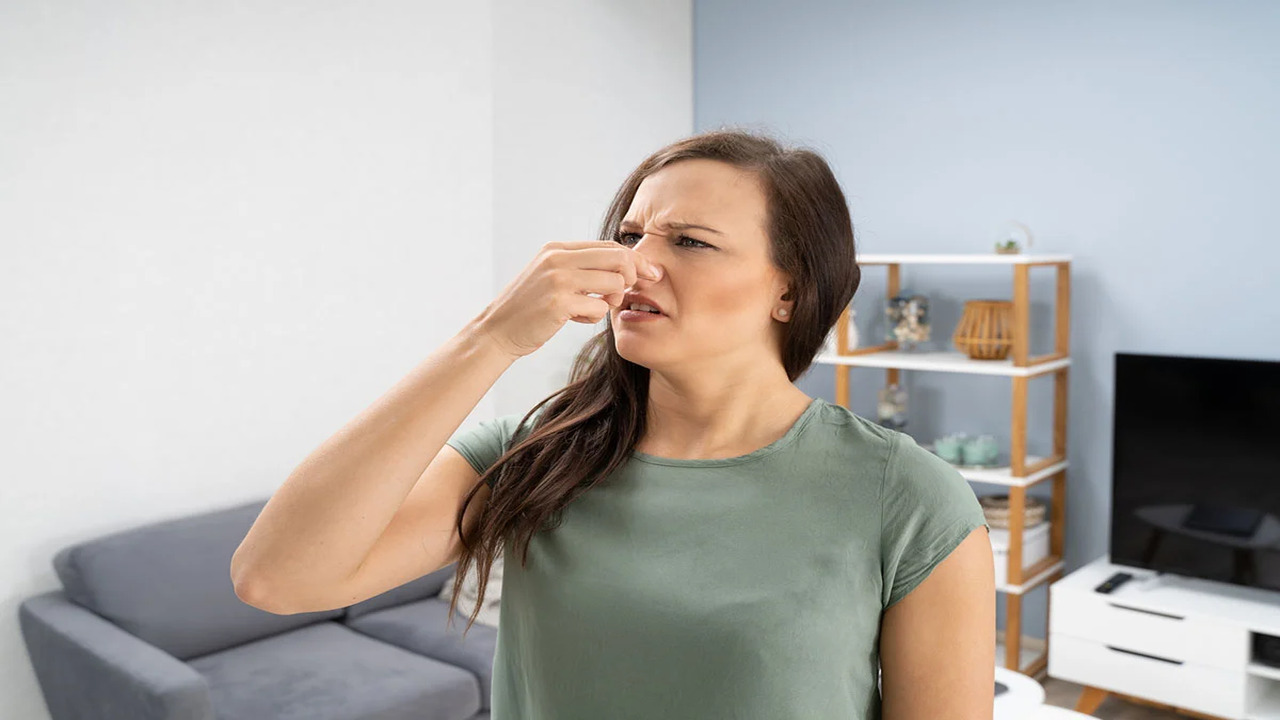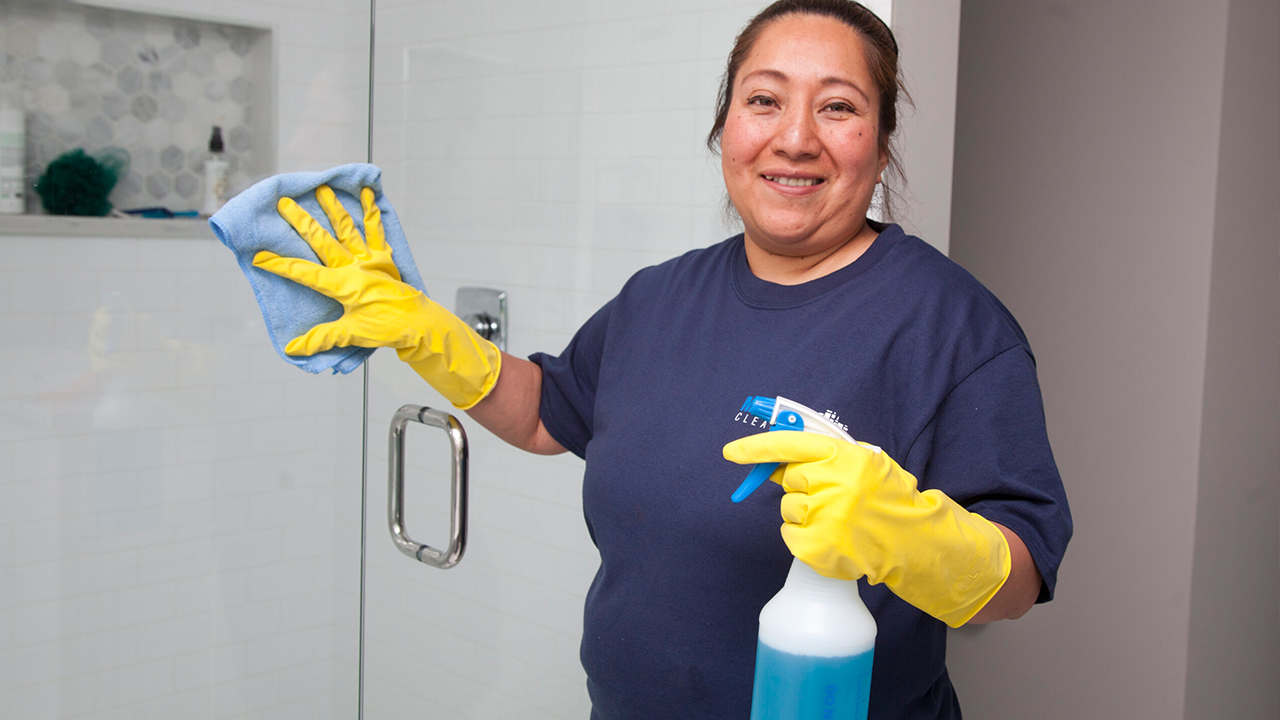As homeowners, we take great pride in keeping our houses clean and welcoming. So, when an unpleasant odour, specifically that of fish, permeates our living spaces, it can be both puzzling and frustrating.
This fishy smell can be overwhelming and persistent, making it difficult to identify the source and eliminate it. However, there are various reasons why your house may smell like fish, and it is essential to understand them to tackle the issue effectively.
Here, we’ll cover everything you need to know about why does my house smell like fish. From what it could mean to the possible causes behind it, we’ll dive deep into the topic. We’ll also provide you with some cleaning and maintenance tips that will help keep your home smelling fresh and prevention tips to avoid future smells.

7 Reasons Why Does My House Smell Like Fish

Identifying the source of the fishy smell in your house is crucial for addressing the issue. The fishy odour can indicate an underlying problem that requires attention. Understanding the possible causes of this smell can help you find a solution.
There can be several reasons why your house may smell like fish. If you’re unable to identify the source of the fishy smell or if it persists despite your attempts to eliminate it, it may be wise to consult with professionals who can provide further assistance and guidance. Here are seven possible explanations for why does my house smell like fish:
1.Spoiled Food

Spoiled food, especially leftovers or rotten seafood in your refrigerator, can emit an unpleasant fishy odour throughout your house. To combat this smell, it is crucial to clean your fridge and dispose of expired food regularly. Cleaning your refrigerator not only eliminates the fish smell but also prevents the growth of bacteria and mold.
Make sure to check for any forgotten items at the back of your fridge that may have gone bad. By practising good hygiene and taking immediate action to remove spoiled food, you can keep your home smelling fresh and free from any lingering fishy odours.
2.Plumbing Issues
If you’re noticing a fishy smell coming from your drains or bathroom, it could be a sign of plumbing issues. The odour may spread if there are leaks or blockages in your plumbing system. It’s important to address these problems promptly to avoid further complications.
If you’re experiencing this unpleasant smell, it might be time to call a professional plumber. They can inspect your pipes, identify any potential issues, and provide the necessary repairs. Please don’t ignore the fishy smell, as it could be an indication of underlying plumbing problems that require immediate attention.
3.Mold Or Mildew

Damp areas like bathrooms or basements can create the ideal conditions for the growth of mold or mildew. Unfortunately, the presence of mold or mildew can contribute to the fishy smell in your house. These fungi emit organic compounds that produce an unpleasant odour.
Mold and mildew often thrive in moist environments, and if left unchecked, they can spread and permeate the air in your home. To address this issue, it’s important to identify and eliminate the source of moisture by fixing leaks or improving ventilation. Additionally, using disinfectants or mould-resistant chemicals can help prevent the growth of mold or mildew.
4.Dead Animals
A potential cause for your house smelling like fish is a dead animal that has become trapped in the walls or hidden areas. This can result in a strong and unpleasant odour permeating throughout your home. To eliminate the smell, it is crucial to locate and remove the source of the odour.
This may involve checking narrow crevices and hard-to-reach areas where the animal might be located. Once the animal has been removed, the odour should gradually dissipate. If you are unsure about handling this task yourself, it is advisable to seek professional help to ensure the proper removal of the carcass.
5.HVAC System Problems
Dirty or malfunctioning HVAC systems can often spread a fishy odour throughout your home. Regular maintenance and cleaning are crucial to prevent HVAC-related fishy smells. Neglecting your HVAC system can lead to the buildup of dust, dirt, and other particles that create an unpleasant odour when circulated.
It is important to schedule regular professional maintenance to ensure that all electrical components, such as wires and insulation, are in good condition. Additionally, immediate attention should be given to any electrical problems, as faulty wiring or overheating components can also contribute to strange smells. By addressing HVAC system problems promptly and keeping your system well-maintained, you can eliminate the fishy odour and keep your home smelling fresh.
6.Pest Infestation

If you notice a fishy odour in your house, it could be a sign of a pest infestation. Certain pests, such as rodents or insects, can leave behind this distinct smell. Addressing pest infestation is crucial to eliminate the fishy odour and ensure the well-being of your home.
By taking immediate action and contacting a professional exterminator, you can effectively deal with the pests and get rid of the unpleasant smell. Remember, a pest infestation not only affects the smell of your house but also poses risks to your health and property. Don’t ignore the signs, and seek proper pest control to keep your home safe and odor-free.
7.Environmental Factors
External factors, such as the presence of nearby bodies of water or seafood restaurants, can be responsible for that fishy smell in your house. These environmental factors can contribute to the odour permeating your home. It’s important to note that when it comes to addressing this issue, ventilation plays a crucial role.
By ensuring proper airflow and using air purifiers, you can help mitigate the impact of external sources on the smell. Taking these steps will help create a more pleasant living environment and eliminate any lingering fishy odours.
Cleaning And Maintenance Tips For Keeping Your Home Smelling Fresh

Keeping your home smelling fresh is crucial for creating a comfortable living environment. By following these cleaning and maintenance tips, you can keep your home smelling fresh and fish-free. If you find that your house smells like fish, there are a few cleaning and maintenance tips that can help eliminate the odour.
- Keep Your Kitchen Clean: The smell of fish can linger in your kitchen if you don’t clean up properly after cooking. Make sure to wipe down countertops, clean dishes and utensils, and empty the trash regularly.
- Check For Hidden Sources: Sometimes, the smell of fish can come from unexpected sources like a hidden spill or a forgotten piece of food. Take the time to thoroughly inspect your kitchen and other areas of your home to identify and remove any potential culprits.
- Ventilate Your Home: Proper ventilation is key to keeping your home smelling fresh. Open windows and use fans or ventilation systems to circulate air and remove any odours.
- Use Odour Absorbers: Consider using natural odour absorbers like baking soda or activated charcoal to help neutralize unpleasant smells.
- Clean Carpets And Upholstery: If the fishy smell persists, it may be absorbed into your carpets or upholstery. Regularly vacuuming and steam cleaning these areas can help eliminate odours.
Prevention Tips To Avoid Future Fishy Smells In The House
If your house smells like fish, it can be quite unpleasant and may leave you wondering what could be causing the odour. By following these prevention tips, you can avoid future fishy smells in your house and enjoy a fresh-smelling home environment. Here are some prevention tips to help you avoid future fishy smells in your house:
- Clean Your Kitchen Regularly: Fishy smells can often originate from the kitchen, so make sure to clean surfaces, appliances, and utensils thoroughly after cooking seafood.
- Properly Dispose Of Food Waste: If you have leftover fish or seafood, ensure that it is properly wrapped and disposed of in a sealed garbage bag outside your home.
- Check For Plumbing Issues: A fishy smell may indicate a problem with your plumbing system. Inspect sinks, drains, and pipes for any leaks or blockages that could be causing the odour.
- Use Odour Absorbers: Place bowls of vinegar or baking soda in areas where the fishy smell is prevalent. These natural odour absorbers can help neutralize unwanted odours.
- Keep Your Home Well-Ventilated: Opening windows and using fans can improve air circulation and prevent lingering odours from becoming trapped indoors.
When To Seek Professional Help If The Odour Persists
If your house smells like fish and the odour persists despite your best efforts to eliminate it, it may be time to seek professional help. While there can be several reasons for a fishy odour in the home, such as rotten food or plumbing issues, a persistent smell could indicate a more serious problem.
It could be a sign of hidden water damage, mould growth, or even an electrical issue. A professional can conduct a thorough inspection of your home to identify the source of the odour and provide appropriate solutions. Don’t ignore persistent fishy smells in your home, as they could be indicative of underlying issues that require immediate attention.
Conclusion
Having a fishy smell in your house can be quite unpleasant and can also indicate underlying issues that need to be addressed. Whether it’s spoiled food, plumbing issues, mould or mildew, dead animals, HVAC system problems, pest infestation, or environmental factors, it’s important to identify the cause and take appropriate action.
Regular cleaning and maintenance can help keep your home smelling fresh, and implementing prevention tips can avoid future fishy smells. However, if the odour persists despite your efforts, it may be necessary to seek professional help. Remember, maintaining a clean and fresh-smelling home contributes to a healthier and more comfortable living environment for you and your family. So it is essential to know why does my house smell like fish.
Frequently Asked Questions
1.Is It Safe To Stay In A House With A Fishy Smell?
Ans: Staying in a house with a fishy smell is not safe. It could indicate mould, bacteria growth, or plumbing issues. Identifying and addressing the cause is crucial for a healthy living environment. Regular cleaning and maintenance can help prevent the buildup of odours.
2.How Do I Get Rid Of The Fishy Smell In My House?
Ans: To eliminate the fishy smell in your house, start by identifying and removing the source if possible. Improve ventilation by opening windows and doors. Temporarily mask the odour with air fresheners or odour-neutralising sprays. Use vinegar or baking soda to clean surfaces and neutralize odours.
3.Does Carbon Monoxide Smell Like Fish?
Ans: No, carbon monoxide does not have a fishy smell. It is an odourless and colourless gas that can be dangerous if inhaled. If you notice a fishy smell in your home, it may indicate a plumbing or electrical issue. If you suspect a gas leak, evacuate immediately and call emergency services.
4.Is It Possible That There Is A Dead Animal Causing The Odour?
Ans: A dead animal may be the cause of the fishy odour in your house. Dead rodents, birds, or even fish can emit such smells. Look for signs like flies or maggots. If you’re unable to find the source, contact a professional pest control service.
5.Can Mould Or Mildew Cause Your House To Smell Like Fish?
Ans: Mould or mildew can indeed cause your house to smell like fish. The musty odour produced by these fungi can be mistaken for a fishy smell. To address this issue, it’s important to identify and fix any water leaks that may be promoting their growth. If you suspect mould or mildew, contact a professional for remediation.




